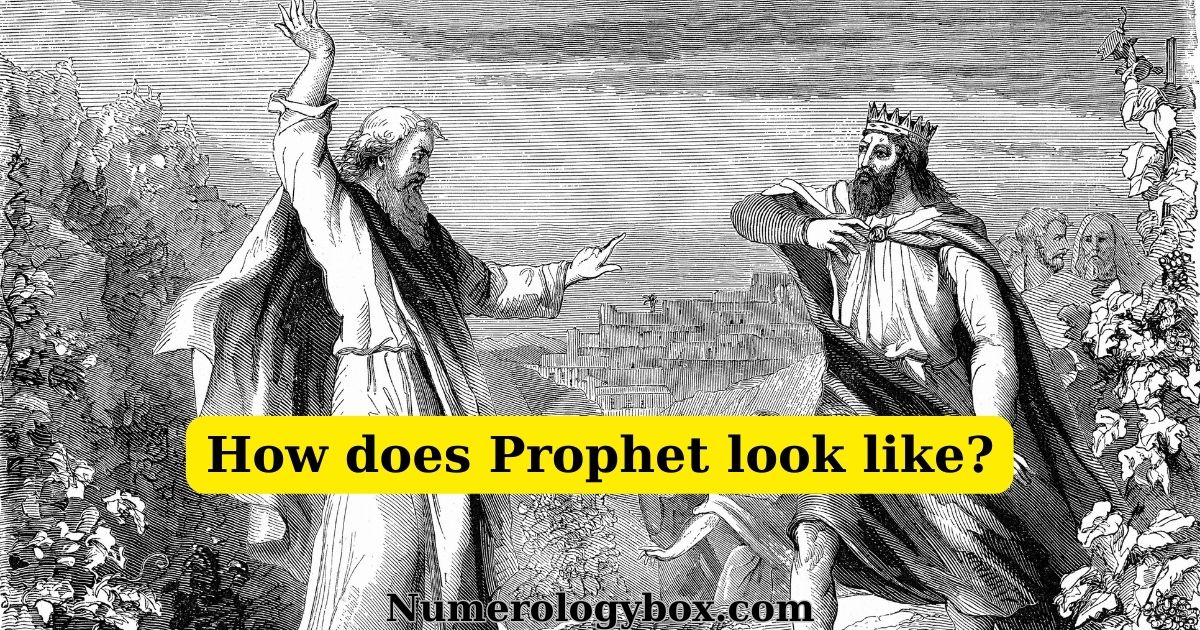How Does a Prophet Look Like? Understanding the Physical Appearance of Prophets
How Does a Prophet Look Like?

Prophets are revered figures in many religions, and their teachings and prophecies have had a significant impact on humanity. While their spiritual and moral teachings are widely discussed, the physical appearance of prophets is not often discussed. In this blog, we will explore how prophets looked like based on historical and religious accounts.
What is the Physical Appearance of Prophet?
The physical appearance of prophets can vary based on historical, religious, and cultural contexts. However, there are some common physical characteristics that are often associated with prophets.
In Islam
In Islam, the Prophet Muhammad is often described as having a broad forehead, a straight nose, and a thick beard. He is also said to have had a robust build and a commanding presence. In many depictions, he is shown wearing a turban, which is a symbol of leadership and authority.
In Christianity
In Christianity, many prophets are depicted wearing robes and sandals. Jesus Christ, who is considered a prophet in Christianity, is often shown with long hair and a beard. The Bible describes him as having a gentle and compassionate demeanor.
In Judaism
In Judaism, prophets are often depicted with long beards and wearing traditional clothing, such as a prayer shawl or a tunic. Moses, who is considered a prophet in Judaism, is often depicted with a long beard and wearing a robe.
It is important to note that the physical appearance of prophets can vary based on cultural context. In African and African-American cultures, prophets are often depicted with darker skin tones and distinct hairstyles.
Ultimately, the physical appearance of prophets is not as important as their spiritual teachings and contributions to humanity. Regardless of their physical appearance, their wisdom and guidance continue to inspire people of all cultures and religions.
Prophet’s Habits and Characteristics
Prophets are revered figures in many religions, and their teachings and actions have had a significant impact on humanity. While their physical appearance may vary, there are some common habits and characteristics that are often associated with prophets across different religions and cultures. Here are some of them:
Devotion to God:
Prophets are known for their deep devotion and connection to God. They spend much of their time in prayer, meditation, and contemplation, seeking guidance and wisdom from a higher power.
Humility:
Prophets are often humble and have a sense of modesty about their own accomplishments and status. They do not seek fame or material wealth and instead focus on serving others and doing good in the world.
Compassion:
Prophets have a deep sense of compassion and empathy for others. They are often seen helping the poor, healing the sick, and comforting the distressed.
Courage:
Prophets are not afraid to speak the truth and stand up for what is right, even in the face of opposition and persecution. They have a strong moral compass and are guided by principles of justice and fairness.
Wisdom:
Prophets possess a deep wisdom and understanding of the world and its mysteries. They are often sought after for their guidance and insight into complex issues.
Patience:
Prophets have a great deal of patience and resilience in the face of adversity. They are able to endure difficult circumstances and setbacks with grace and perseverance.
Perfection in character:
Prophets are known for their impeccable character and ethical conduct. They are truthful, trustworthy, honest, and fair in all their dealings.
Love for humanity:
Prophets have a deep love for humanity and strive to bring people together in harmony and peace. They see all people as equals and seek to promote compassion and understanding across different cultures and religions.
Overall, the habits and characteristics of prophets reflect their deep spiritual connection to God and their commitment to serving humanity. Their examples inspire people of all cultures and religions to strive for a better world based on love, compassion, and justice.
FAQs Prophet
Who is considered a prophet?
Prophets are revered figures in many religions, including Islam, Christianity, Judaism, and others. In general, a prophet is a person who is believed to have a special connection with God or a higher power and is chosen to receive and deliver divine messages or teachings to humanity.
How are prophets chosen?
The process of choosing a prophet varies depending on the religion and culture. In some cases, prophets are chosen by God directly through divine revelation, while in others they are chosen by a community or religious institution. In Islam, for example, the Prophet Muhammad was chosen by God to receive divine revelations through the angel Gabriel.
What is the role of a prophet?
The role of a prophet is to convey divine messages or teachings to humanity, often with the aim of guiding people towards righteousness and moral uprightness. Prophets are also often seen as leaders and role models who exemplify the qualities of humility, compassion, and service to others.
What are some of the most well-known prophets?
There are many prophets revered in different religions and cultures. Some of the most well-known prophets include Abraham, Moses, Jesus Christ, and Muhammad. However, there are many other prophets who are celebrated and revered in different parts of the world.
What is the significance of prophets in religion?
Prophets play a central role in many religions, as they are seen as messengers of God or a higher power. They are revered for their wisdom, teachings, and guidance, and are often regarded as role models for moral and ethical behavior. The stories and teachings of prophets are an important part of religious tradition and serve as a source of inspiration and guidance for believers.
How are prophets remembered and celebrated?
The way in which prophets are remembered and celebrated varies depending on the religion and culture. In Islam, for example, the Prophet Muhammad is remembered and celebrated through the annual holiday of Eid al-Fitr, which marks the end of the month of Ramadan. In Christianity, prophets are often commemorated through special feast days or liturgical celebrations. Prophets are also often remembered through religious texts, stories, and teachings that are passed down from generation to generation.
Relation:
What Are Angel Numbers? & How can you find your angel numbers?
Did Einstein Believe in the Law of Attraction? The Truth Revealed
How do angels communicate with us?
What to read next:
Source: https://numerologybox.com
Category: Angel Number


